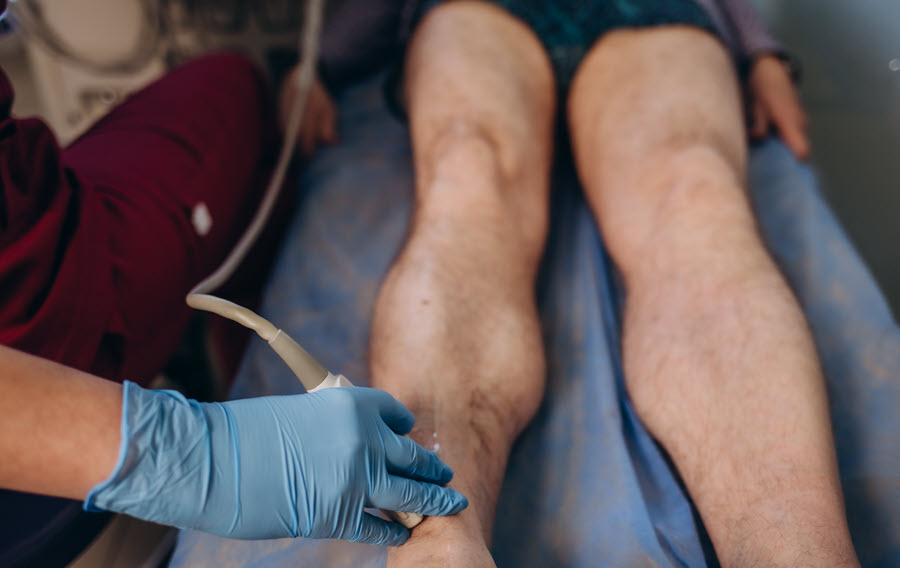Wegovy, a popular weight loss medication, has been a game-changer for many in their journey towards a healthier lifestyle. But with its rise in popularity, concerns about potential side effects, including blood clots, have surfaced. It’s crucial to dive into what this means for you and your health.
Understanding the link between Wegovy and blood clots is essential, especially if you’re considering this medication or are currently using it. Let’s explore the facts, dispel myths, and provide you with the knowledge you need to make informed decisions about your health.
Key Takeaways
- Understanding the potential link between Wegovy and blood clots is crucial for individuals considering or using this weight loss medication. Despite its popularity, the need for further research into this specific side effect is evident.
- Wegovy users should be aware of the symptoms and risks associated with blood clots, such as Deep Vein Thrombosis (DVT) and Pulmonary Embolism (PE), and understand that obesity itself increases clotting risks, which the medication may potentially add to.
- A comprehensive discussion with healthcare providers about personal health history, including any pre-existing conditions or family history of blood clots, is essential before starting Wegovy. This allows for personalized guidance and monitoring.
- Monitoring for symptoms of blood clots, like swelling, pain in the legs, or sudden shortness of breath, and seeking immediate medical attention if they occur, can significantly reduce the risk of complications.
- Debunking myths about Wegovy and blood clots is important for making informed health decisions. Not all users face the same risk level, and effective weight loss can actually reduce the overall risk of blood clots.
Exploring the Link Between Wegovy and Blood Clots
Blood clots are a serious health complication that can lead to conditions like deep vein thrombosis (DVT) or even pulmonary embolism, both of which can be life-threatening if not treated promptly. The mechanics behind why Wegovy could increase the risk of blood clots are not entirely clear. However, some experts suggest that changes in blood composition or circulation associated with significant weight loss could play a role.
To get a better grasp, let’s consider what scientific studies say. Unfortunately, comprehensive data specifically linking Wegovy to an increased risk of blood clots is limited, reflecting the need for further research in this area. However, understanding the general risks associated with obesity-related treatments can offer some insights.
| Risk Factor | Impact on Blood Clot Risk |
|---|---|
| Significant weight loss | Possible increase due to changes in blood composition and circulation |
| Medication type | Varies, with some weight loss medications linked to higher risks |
| Personal health history | Pre-existing conditions can elevate risk |
If you’re considering Wegovy, it’s crucial to have a candid discussion with your healthcare provider about your health history and the potential risks. They can provide personalized guidance and monitor your health throughout your weight loss journey.
Moreover, staying informed about the signs of blood clots is essential. Symptoms such as unexplained swelling, pain in the legs, or sudden shortness of breath warrant immediate medical attention and a trip to the emergency room. Early detection and treatment can significantly reduce the risk of complications.
Why are Blood Clots Dangerous?
Blood clots are a serious health concern that can have life-threatening consequences if not addressed promptly. Essentially, a blood clot is a mass formed by platelets and fibrin in the blood to stop bleeding. While they play a crucial role in healing, when they form unnecessarily or don’t dissolve properly, they can pose significant risks.
There are two main types of dangerous blood clots you should be aware of: Deep Vein Thrombosis (DVT) and Pulmonary Embolism (PE). DVT occurs when a blood clot forms in a deep vein, usually in the legs, which can cause pain, swelling, and redness. If a clot breaks free, it can travel to your lungs, becoming a PE, a potentially fatal condition if not treated immediately.
Key signs and symptoms of DVT include:
- Swelling in the affected leg
- Pain that often starts in your calf and can feel like cramping or soreness
- Red or discolored skin on the leg
For PE, symptoms to watch for are:
- Sudden shortness of breath
- Chest pain or discomfort that worsens when you take a deep breath or cough
- Feeling lightheaded or dizzy
Several factors can increase your risk of developing blood clots, such as:
- Prolonged immobility
- Certain medications
- Smoking
- Pregnancy
- Being overweight or obese
- Significant weight loss
Risks and Concerns Associated with Wegovy Use

Obesity itself is a known risk factor for the development of blood clots. Therefore, individuals using Wegovy are likely seeking treatment for obesity or weight-related health issues, which means they may already be at a higher risk. Compounding this risk factor is the significant weight loss that may result in using Wegovy.
It’s also important to consider your personal health history when evaluating the risk of blood clots associated with Wegovy. The following factors may increase your susceptibility to blood clots:
- Family history of blood clots
- Personal history of DVT or PE
- Smoking
- Hormone-based medications
Debunking Myths About Wegovy and Blood Clots
Firstly, it’s essential to understand that not everyone taking Wegovy is at an equal risk of developing blood clots. As it’s already been stated, several different factors significantly influence this risk, including genetic predispositions, lifestyle choices, and underlying health conditions. The assumption that Wegovy universally increases the risk of blood clots across all users has not been proven.
Another common myth is that symptoms of blood clots are always obvious and unmistakable. In reality, symptoms can be subtle or mimic other less serious conditions, making it critically important to remain vigilant and consult healthcare providers if you experience any unusual symptoms.
Understanding your personal health history and discussing it openly with your healthcare provider before starting any new medication, including Wegovy, is the best strategy to minimize potential risks and maximize the benefits of the medication.
Making Informed Decisions About Your Health
Choosing Wegovy or any weight management solution requires careful consideration and due diligence on your part. It’s essential to weigh the pros and cons, understanding that managing your weight is a significant step toward improving overall health. Yet, like any medication, Wegovy comes with its set of possible side effects, including the much-discussed risk of blood clots.
Armed with knowledge and a proactive approach, you can make informed decisions about whether Wegovy fits into your health regimen. Key considerations include:
- Your health history: If you’ve had blood clots before or have a family history of blood clot-related conditions, it’s crucial to disclose this to your healthcare provider. This information can significantly impact the risk-benefit analysis of starting Wegovy.
- Lifestyle: Certain lifestyle choices can exacerbate the risk of blood clots. Smoking, for instance, is a well-known risk factor. If you’re considering Wegovy, think about how you might also modify other aspects of your lifestyle to mitigate risks.
- Continuous monitoring: Symptoms of blood clots can be subtle and easily overlooked. Regular check-ins with your healthcare provider can help catch any potential issues early on. Being vigilant about changes in your body and communicating effectively with your healthcare team is key.
Remember, effective weight management is more than just medication. It encompasses a holistic approach that includes diet, exercise, and other lifestyle modifications. Wegovy may be part of the solution, but it’s not the only tool at your disposal.

